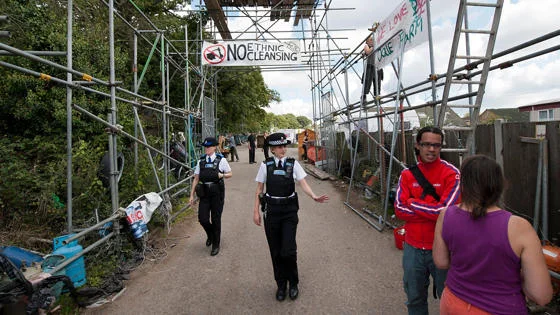New tech can help tackle domestic violence: improving the UK Government’s Domestic Abuse Bill

Contents
Lockdowns have changed the nature of domestic abuse in the UK. While data suggests that the number of crimes has remained broadly the same since the pandemic hit, our further interrogation shows some disturbing changes.
Reports of abuse by ex-partners and external individuals have fallen, as expected, due to limited outside interactions during lockdown. However, we find that abuse from current partners, family members and people living in the same household has increased. Worryingly, such cases of abuse are likely to be heavily under-reported. This is due to the difficulty and danger of a victim making a report when the abuser is in close proximity, and the victim being unable to leave the house.
Police forces are still using old-fashioned methods of predicting repeat abuse, when our research finds that using machine-learning can drastically improve prediction rates.
To tackle this concerning problem, we have been working with police forces on using new technology to help people report abuse safely. We found that alternative methods of reporting such as the Silent Solution and Live Chat, can double the number of reports. These tools allow victims to report abuse without having to speak. But we also uncovered several problems preventing police tackling domestic abuse successfully.

Better data and use of AI methods will improve prediction rates
Data on abuse is often both poorly recorded by police forces, and poorly shared between forces. The technology allowing victims to report abuse safely is often difficult to find, and the branding of online services can still make them obvious on a mobile phone or laptop screen. On a wider level, police forces are still using old-fashioned methods of predicting repeat abuse, when our research finds that using machine-learning, AI methods and better data can drastically improve prediction rates, as well as help police allocate resources quickly and more effectively.
The time is ripe for improvements to be made. The UK Government has declared tackling domestic violence and abuse a priority, and new domestic abuse legislation has been passing through Parliament. The law will create a powerful and independent Domestic Abuse Commissioner to champion new efforts to prevent abuse, help victims and hold policymakers to account. It will also create new methods to immediately disrupt situations where abuse has taken place, or might take place imminently.
The Bill has been welcomed by politicians, campaigners and police forces, which is a strong first step. However, we believe it could be improved by making explicit the role of better data and technology in tackling abuse, in line with the concerns uncovered through our research. This is why we have been working with LSE’s Public Affairs team to ensure our findings have impact on the legislation, the political debate around domestic abuse, and the Home Office’s longer-term thinking.
There is huge value in the new connections we have made...[and] our experiences will have a huge effect on our ongoing work to influence policies around gangs and police productivity.
Taking our research to Parliament, with support from the House of Lords
When the draft legislation was first introduced to Parliament, we sent a briefing to MPs detailing our research and where improvements could be made. This was followed by a series of highly productive individual meetings with influential MPs and members of the House of Lords. We were also invited to present our findings to the Greater London Authority’s Police and Crime Committee, to discuss how our research can contribute to change in the capital.
These meetings were probing and fascinating, offering excellent insight into the way policymakers think and approach academic research. Politicians are adept at getting to the nub of issues quickly, and we were impressed at their interest and expertise. We were delighted, following this, to be asked to contribute to the government’s upcoming Domestic Abuse Strategy. This will ensure our findings are properly captured in the Home Office’s future work.
The support for our research inspired us to get even more involved in the policymaking process. When the Domestic Abuse Bill arrived in the House of Lords to be debated just after Christmas, we sent briefings detailing how our research could improve the legislation to every politician registered to speak. This resulted in two Peers – Baroness Eaton (Conservative) and Earl Lytton (Crossbench) – championing our work and asking the minister to give it urgent consideration.
Informing amendments to the Domestic Abuse Bill
More recently we have been working with members of the House of Lords and the LSE Public Affairs team to draft small but important amendments to the Bill that will encourage better use of technology and data. These were accepted for debate. Supported by Peers from across the political parties, an urgent meeting request has now gone out to the relevant minister, alongside an approach to the new Domestic Abuse Commissioner outlining our research, our concerns, and our commitment to helping improve domestic abuse policy.
The process is ongoing, but there is huge value in the new connections we have made through this influencing work. With ministers and advisers. With MPs and Peers. With experts and campaigners. There is a lot of work still to be done, but the politicians we have met have shown both expertise and passion, and the journey so far has been energising, educational and eye-opening. Furthermore, as part of the Centre for Economic Performance (CEP) Policing and Crime Group, our experiences will have a great effect on our ongoing work to influence policies around gangs, police productivity, and the detection and prevention of crime – all areas that will become ever more important in the coming years.
Tom Kirchmaier and Ria Ivandic have been working with Greg Taylor and Zoe Russell from the LSE Public Affairs team.
Image: iStock: Fizkes
For more, see CEP discussion papers "Comparing conventional and machine-learning approaches to risk assessment in domestic abuse cases" by Jeffrey Grogger, Ria Ivandic and Tom Kirchmaier, and "Changing patterns of domestic abuse during COVID-19 lockdown" by Ria Ivandic, Tom Kirchmaier and Ben Linton.





